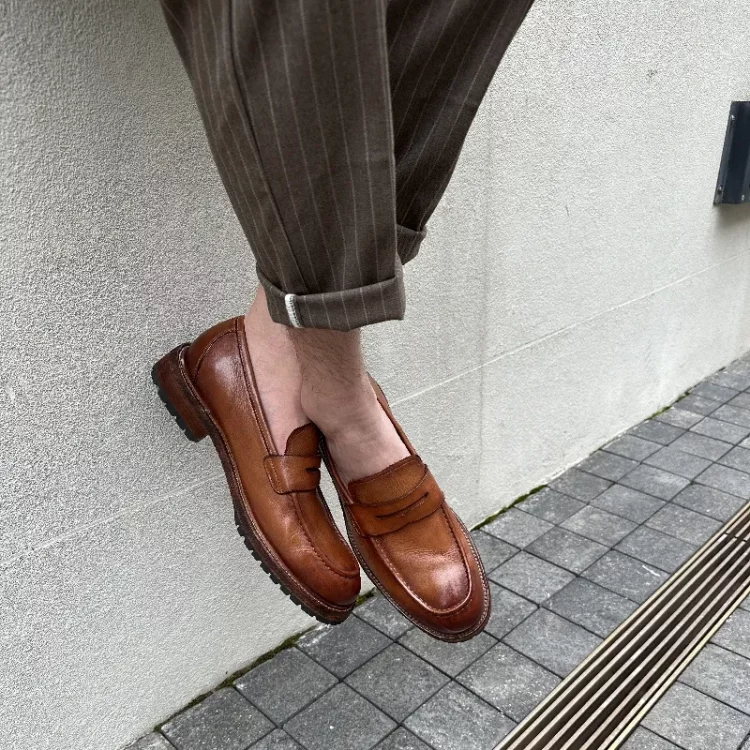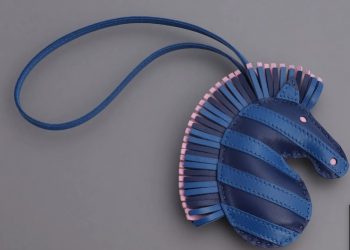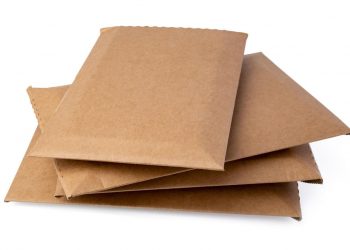In today’s fashion landscape, the rise of eco-friendly handmade loafers marks a significant shift towards sustainability. This movement isn’t just about style; it’s a profound statement about environmental stewardship and ethical consumerism. With a keen focus on materials, craftsmanship, and consumer choices, the fashion industry is witnessing a renaissance of traditional shoemaking techniques that blend elegance with eco-conscious practices.
Craftsmanship Meets Sustainability
The return to artisanal shoemaking reflects a growing consumer desire for quality and uniqueness, with an added emphasis on ethical production. Handmade loafers, crafted with meticulous attention to detail, represent a fusion of timeless elegance and modern sustainability. These shoes are not merely fashion statements; they’re symbols of a commitment to reducing our environmental footprint.
Choosing Eco-Friendly Materials
Sustainability in fashion begins with material selection. Eco-friendly leather, sourced responsibly, along with natural dyes, highlights a dedication to minimizing environmental impact. This approach ensures that each pair of loafers is not only stylish and durable but also safe for both the wearer and the planet.
Durability: A Sustainable Choice
The longevity of handmade leather shoes is a key aspect of their sustainability. Durable and designed to last, these loafers shoes counter the fast-fashion trend, reducing waste and promoting a more thoughtful consumption pattern. Investing in a pair of well-crafted loafers means making a choice that benefits both the individual and the environment.
Ethical Production and Consumer Influence
Ethical considerations extend beyond the materials to include fair labor practices and the preservation of artisanal skills. Consumers play a crucial role in driving the fashion industry towards more ethical and sustainable practices. By choosing handmade loafers, individuals support artisans and small-scale producers, fostering a more equitable and sustainable fashion ecosystem.
Sustainable Practices in Shoemaking
Handmade shoemaking incorporates eco-friendly practices at every step, from reducing resource use to employing non-toxic materials. These methods not only lessen the environmental impact but also enhance the quality and uniqueness of the footwear.
Personalization and Zero Waste
Handmade shoes offer a level of personalization that creates a unique connection between the wearer and the craft. This customization, coupled with a zero-waste approach to material use, showcases how sustainability can enhance the value of fashion items.
Choosing Quality Handmade Footwear
Understanding the hallmarks of high-quality handmade footwear enables consumers to make choices aligned with their values and style preferences. Premium materials, craftsmanship, and ethical production are key factors to consider.
The Future of Fashion with NewEyeSee
NewEyeSee Footwear is at the forefront of the sustainable fashion movement, offering an exquisite selection of handmade loafers and other leather shoes. Emphasizing traditional craftsmanship, NewEyeSee combines style with sustainability, offering a range of footwear that appeals to the modern, eco-conscious consumer.
With services like worldwide delivery and a commitment to customer satisfaction, NewEyeSee is more than a brand; it’s a gateway to sustainable fashion. For those who prioritize both style and environmental responsibility, NewEyeSee’s offerings represent the perfect blend of tradition and modern eco-friendly practices.
Embracing Sustainable Footwear
The movement towards eco-friendly handmade loafers is not just a trend; it’s a crucial step in the journey towards more sustainable and ethical fashion. By choosing footwear that reflects a commitment to the environment and artisanal craftsmanship, consumers can make a positive impact on the planet and its inhabitants. With brands like NewEyeSee leading the charge, the path to sustainable fashion is both stylish and accessible.
In today’s fashion landscape, the rise of eco-friendly handmade loafers marks a significant shift towards sustainability. This movement isn’t just about style; it’s a profound statement about environmental stewardship and ethical consumerism. With a keen focus on materials, craftsmanship, and consumer choices, the fashion industry is witnessing a renaissance of traditional shoemaking techniques that blend elegance with eco-conscious practices.
Craftsmanship Meets Sustainability
The return to artisanal shoemaking reflects a growing consumer desire for quality and uniqueness, with an added emphasis on ethical production. Handmade loafers, crafted with meticulous attention to detail, represent a fusion of timeless elegance and modern sustainability. These shoes are not merely fashion statements; they’re symbols of a commitment to reducing our environmental footprint.
Choosing Eco-Friendly Materials
Sustainability in fashion begins with material selection. Eco-friendly leather, sourced responsibly, along with natural dyes, highlights a dedication to minimizing environmental impact. This approach ensures that each pair of loafers is not only stylish and durable but also safe for both the wearer and the planet.
Durability: A Sustainable Choice
The longevity of handmade leather shoes is a key aspect of their sustainability. Durable and designed to last, these loafers counter the fast-fashion trend, reducing waste and promoting a more thoughtful consumption pattern. Investing in a pair of well-crafted loafers means making a choice that benefits both the individual and the environment.
Ethical Production and Consumer Influence
Ethical considerations extend beyond the materials to include fair labor practices and the preservation of artisanal skills. Consumers play a crucial role in driving the fashion industry towards more ethical and sustainable practices. By choosing handmade loafers, individuals support artisans and small-scale producers, fostering a more equitable and sustainable fashion ecosystem.
Sustainable Practices in Shoemaking
Handmade shoemaking incorporates eco-friendly practices at every step, from reducing resource use to employing non-toxic materials. These methods not only lessen the environmental impact but also enhance the quality and uniqueness of the footwear.
Personalization and Zero Waste
Handmade shoes offer a level of personalization that creates a unique connection between the wearer and the craft. This customization, coupled with a zero-waste approach to material use, showcases how sustainability can enhance the value of fashion items.
Choosing Quality Handmade Footwear
Understanding the hallmarks of high-quality handmade footwear enables consumers to make choices aligned with their values and style preferences. Premium materials, craftsmanship, and ethical production are key factors to consider.
The Future of Fashion with NewEyeSee
NewEyeSee Footwear is at the forefront of the sustainable fashion movement, offering an exquisite selection of handmade loafers and other leather shoes. Emphasizing traditional craftsmanship, NewEyeSee combines style with sustainability, offering a range of footwear that appeals to the modern, eco-conscious consumer.
With services like worldwide delivery and a commitment to customer satisfaction, NewEyeSee is more than a brand; it’s a gateway to sustainable fashion. For those who prioritize both style and environmental responsibility, NewEyeSee’s offerings represent the perfect blend of tradition and modern eco-friendly practices.
Embracing Sustainable Footwear
The movement towards eco-friendly handmade loafers is not just a trend; it’s a crucial step in the journey towards more sustainable and ethical fashion. By choosing footwear that reflects a commitment to the environment and artisanal craftsmanship, consumers can make a positive impact on the planet and its inhabitants. With brands like NewEyeSee leading the charge, the path to sustainable fashion is both stylish and accessible.








